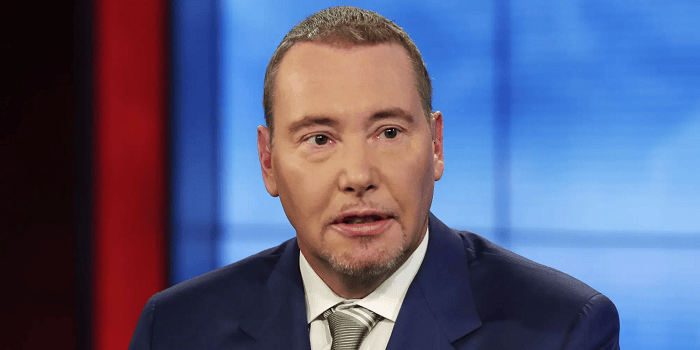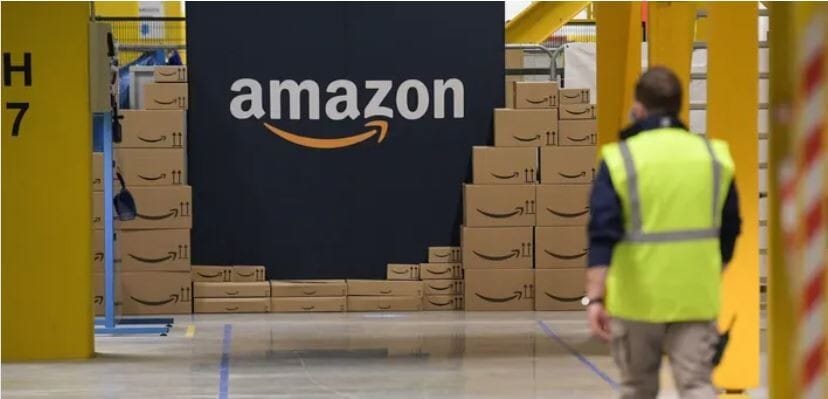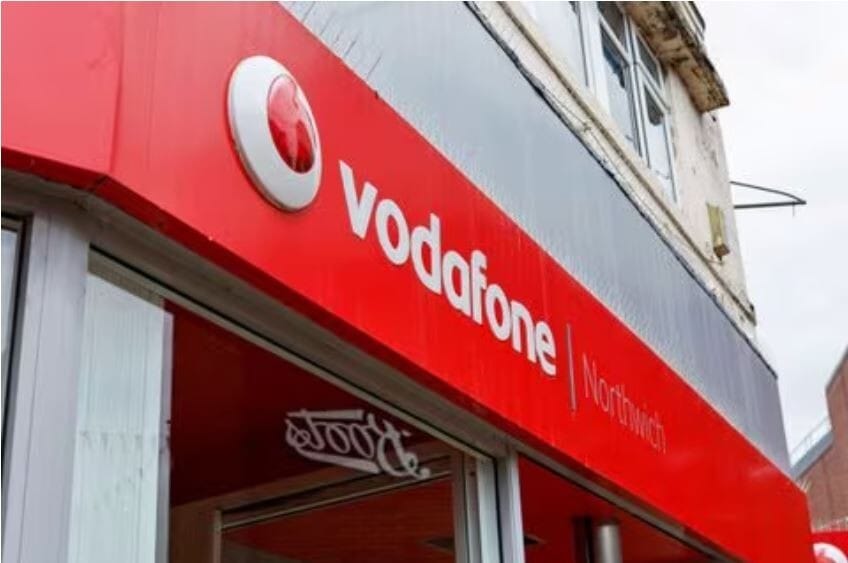- FINTAK Weekly Newsletter
- Posts
- PwC survey finds CEOs are enthusiastic about generative AI’s potential – but worried about the risks.
PwC survey finds CEOs are enthusiastic about generative AI’s potential – but worried about the risks.
A weekly digest of news, opinions and all things financial technology


CEOs foresee immense potential in generative AI for product quality, revenue generation, and worker efficiency, but acknowledge challenges like competitive pressure, cybersecurity risks, and regulatory hurdles.
Key Highlights:
Generative AI Booms: CEOs anticipate the technology to enhance product quality, and 68% see it transforming future value creation in their companies.
Competitive Edge and Efficiency: While optimistic about AI's potential, CEOs also recognize its disruptive impact, with 66% expecting higher industry competition and 61% anticipating workforce reskilling needs.
Revenue Generation and Productivity: 52% of CEOs view generative AI as a new revenue source, and over two-thirds believe it will boost employee productivity in 2024.
Cybersecurity and Reputational Concerns: Despite the benefits, CEOs acknowledge potential risks: 76% foresee increased cybersecurity threats, 63% fear misinformation spread, and 51% worry about legal or reputational risks.
Regulatory Bottlenecks: Government regulations pose significant obstacles, with 31% of CEOs and even higher percentages in other regions citing them as major value creation hurdles.
Inflationary Pressures: Price hikes continue, with 51% of U.S. CEOs planning significant increases against only 6% planning comparable reductions.
Job Market Optimism: Despite concerns, the overall hiring outlook remains positive, with 38% of CEOs planning headcount expansion of at least 5%.


A Pessimist's Guide To Global Economic Risks in 2024
While optimists predict a soft landing, this report lays bare the hidden dangers lurking beneath the surface. From escalating Middle East conflicts and Fed policy missteps to potential financial meltdowns in China and Japan, many threats could put the global economy into a tailspin.

Read more:http://tinyurl.com/29cs5p6n

China's central bank holds medium-term rates but adds liquidity.
The People's Bank of China (PBOC) decided to keep the medium-term policy rate unchanged, contrary to market expectations of a cut, amidst a weaker yuan and economic challenges. This decision reflects concerns over potential depreciation pressure on the renminbi and limited room for monetary easing due to a narrowing interest rate margin at commercial banks. The PBOC aims to maintain liquidity in the banking system and may consider future rate cuts and reserve requirement ratio adjustments.

Read more: http://tinyurl.com/ykbenhuu

US Economy Set for Another Cash Boost If Congress Backs Tax Deal
The U.S. economy might receive a fiscal boost from a potential $70 billion tax break deal for businesses and families, subject to Congressional approval. This deal, split between business tax breaks and a child tax credit, faces hurdles due to deep divisions in Congress, especially with some Republicans demanding spending cuts to prevent a government shutdown. Economists warn that while the tax breaks could increase consumer spending, they might also reignite inflation, complicating the Federal Reserve's interest rate policies. The deal includes measures like reviving tax breaks for R&D spending, boosting investment deductibility, and targeting domestic activities. The child tax credit extension is a key focus, although it's less generous than the Covid-era version. The overall tax package is unlikely to significantly alter inflation forecasts or the Fed's rate cut plans. Despite warnings from rating firms about the U.S.'s unsustainable fiscal trajectory, the tax negotiations show lawmakers aren't moving towards austerity.

Read more: http://tinyurl.com/n46793tj

The S&P 500 looks risky, there's a 75% chance of recession this year, and a firing frenzy is looming, elite investor Jeffrey Gundlach says
The S&P 500 seems like a bad bet now, and the so-called Magnificent Seven stocks are likely to trail the wider market, Jeffrey Gundlach warned during a recent public webcast.
The billionaire investor and DoubleLine Capital CEO also pegged the probability of a recession this year at 75%, struck a bearish note on the dollar, and predicted higher inflation, interest rates, and unemployment than many on Wall Street expect.

Read more:http://tinyurl.com/jzk5abb2

Safaricom launches accelerator program for local startups.
Kenya's telecom giant, Safaricom PLC , in collaboration with M-PESA Africa and Sumitomo Corporation ation, has launched the Spark Accelerator program to foster the growth of early-stage fintech and content startups. The program, to be implemented by iHub, focuses on nurturing selected firms through a three-month comprehensive accelerator course, offering training, coaching, investment, and market support. Safaricom CEO Peter Ndegwa C.B.S a emphasized the program's commitment to providing more than financial aid, addressing key scaling challenges startups face. The Spark Accelerator Programme adopts an ecosystem-based approach, leveraging the expertise of specialists in market dynamics and technology. Startups will also gain technical support to integrate mini-apps within the M-PESA Super App, accessing over 4 million users. The program culminates in an investor demo day, offering funding opportunities from Safaricom and partner venture capital firms, with Vodacom and AWS as additional supporters.

Read more: http://tinyurl.com/4j6m7ns3

GOOGLE CLOUD JOINS FLARE BLOCKCHAIN AS VALIDATOR AND CONTRIBUTOR
Google Cloud has entered into a strategic partnership with Flare blockchain, positioning itself as a validator in the Flare network. This collaboration signifies Google Cloud's active involvement in blockchain validation and infrastructure provision, marking its entry into the rapidly evolving Web3 domain. Google Cloud's role extends to supporting the Flare Time Series Oracle (FTSO), crucial for delivering accurate price data on the network. This move enhances Flare's decentralization efforts and expands access to decentralized data. Additionally, Flare has joined the Google for Startups Program, aimed at fostering the growth of Web3 startups, further solidifying the synergy between Google Cloud and the blockchain ecosystem.

Read more: http://tinyurl.com/2vhjj4hp

Web3 faces regulatory hurdles in Africa, slowing progress
Despite surging blockchain investment and a youthful population, Africa's Web3 adoption faces roadblocks: lack of clear regulations and limited digital literacy. Cartesi's JATHIN JAGANNATH ath highlights regulatory uncertainty as a key barrier to Africa's Web3 growth, stressing the need for clear regulations, enhanced digital literacy, and educational initiatives like the Cartesi masterclass in Nigeria to drive Web3 adoption and innovation.
Key Highlights:
Regulatory hurdle: Unclear Web3 regulations in Africa discourage potential users and investors, despite significant blockchain funding growth.
Digital literacy gap: Lack of education and knowledge access hinders widespread adoption of Web3 technologies.
Collaboration for upliftment: Initiatives like the Cartesi masterclass aim to equip developers with essential Web3 skills.
Africa's unique strengths: A young population and volatile currency create fertile ground for Web3 innovation, particularly in finance and cross-border trade.
Financial inclusion potential: Decentralized wallets and Web3 applications could offer solutions for the 24% of Africans currently excluded from the traditional banking system.

Read more: http://tinyurl.com/hm6etp6a

Ericsson and MTN Extend Mobile Fintech Partnership in Africa
MTN Group and Ericsson expand their partnership to enhance mobile financial services across Africa with MTN's MoMo service, promoting financial inclusion and economic empowerment. The collaboration focuses on a comprehensive suite of services, including banking, payments, and insurance, to meet users' evolving digital financial needs.
Key Highlights:
MTN Group and Ericsson partner to enhance mobile financial services in Africa through the MoMo platform and Ericsson Wallet technology.
The expanded service caters to first-time users and businesses, offering secure mobile device banking, payments, loans, and insurance.
This strengthens MTN's financial inclusion initiatives, reaching unbanked individuals and addressing evolving digital needs.
Over 63 million MTN MoMo users across 16 African countries benefit from this secure and convenient financial ecosystem.
Ericsson Wallet Platform boasts over 400 million registered users and processes billions monthly transactions, adding its expertise to the partnership.

Read more: http://tinyurl.com/5au7tjra

Woven Finance
to shut down by Q1 2024
Woven Finance, a Nigerian fintech startup formed by Trium and linked to the Coronation Group, recently announced the shutdown of its services. This decision was communicated to customers via email on Wednesday morning.
Despite obtaining a Payment Solutions Service Provider (PSSP) license from the Central Bank of Nigeria (CBN) in 2022, Woven Finance has transitioned its services to Hydrogen. Hydrogen is a fintech entity under the umbrella of Access Bank. This strategic move is interpreted as Access Bank's attempt to boost its market position in competition with GTCO's fintech arm, Squad. Kemi Okusanya, who previously served as General Manager at Visa West Africa, is at the helm of Hydrogen. In the communication sent to its customers, Woven Finance explained, "Considering the evolving market dynamics and their implications on our operational framework, we have decided to discontinue our payment services operations in the first quarter of 2024.

Read more: http://tinyurl.com/3phphbb6

Bolt tackles losses with app feature to stop offline trips
Ride-hailing platform Bolt is taking a firm stance against offline trips and driver misconduct by introducing a new cancellation option in its app: "Driver Asked to Pay Off-the-App." This move aims to deter riders from taking trips outside the app's secure environment and paying cash directly to drivers, potentially compromising their safety and exposing them to unfair pricing.

Read more: http://tinyurl.com/mr235ujw

Hoteliers, travellers say eTA is visa by another name
Kenya's recent introduction of the Electronic Travel Authorization (eTA) following a visa waiver announcement has stirred controversy among tourism and hospitality stakeholders. Despite President William Ruto's initial announcement of visa-free entry starting in 2024, travelers now face a mandatory $30 eTA fee. Effective January 5, 2024, this new policy applies to all travelers except East Africans and replaces the previous visa system. Critics, including immigration lawyer Davis Nyagah and Michael Macharia, CEO of Kenya Association of Hotelkeepers and Caterers, argue that the eTA contradicts the promised visa liberalization and could negatively impact tourism. Concerns also arise over the potential breach of bilateral agreements and the lack of public participation in the policy change. However, Kenyan officials defend the eTA as a means to streamline travel processing and enhance security, with Immigration Director-General Evelyn Cheluget highlighting its benefits for security and policy planning.

Read more: http://tinyurl.com/2s3vwbuu

Amazon, Google, Duolingo Cut Hundreds Of Jobs: Here Are The 2024 Tech Layoffs
This week, the tech industry witnessed a significant wave of layoffs at major companies like Amazon, Google, and Duolingo, as they aim to "rightsize" their workforces amidst ongoing recession concerns. Twitch, Amazon's live streaming platform, announced a 35% staff reduction, impacting around 500 employees. Amazon's audiobook division, Audible, and its Prime Video and MGM Studios divisions also saw substantial job cuts. Google's layoffs spanned various divisions, including engineering and Google Assistant development. Duolingo cut 10% of its contract staff, focusing more on AI for content generation. Other tech firms, including AI startup Humane and communication platform Discord, also announced layoffs as part of their strategic adjustments for growth. Unity Software revealed a massive reduction of one-quarter of its staff. These recent layoffs, however, are less extensive compared to the larger-scale job cuts seen in the tech sector last January. Over 305,000 U.S. employees faced layoffs last year, with significant reductions from companies like Amazon, Google, Meta, and Microsoft.

Read more: http://tinyurl.com/429rfkbf

Microsoft beats Apple as most valuable company for first time in two years
Microsoft has surpassed Apple as the world's most valuable company for the first time since 2021, with a market capitalization of $2.887 trillion compared to Apple's $2.875 trillion. This shift in market leadership is attributed to concerns over iPhone sales affecting Apple's shares, which have declined 3% in 2024. In contrast, Microsoft has seen a 3% rise in its stock value this year, following a 57% surge in 2023, partly fueled by its advancements in generative AI and partnership with OpenAI, the creators of ChatGPT. Microsoft's integration of AI technologies into its productivity software and cloud-computing services has been a key factor in this growth. Apple, meanwhile, faces challenges with decreased smartphone demand and competition in key markets like China. Despite the upcoming launch of Apple's Vision Pro mixed-reality headset, analysts predict its impact on Apple's earnings to be minimal in 2024. These market dynamics have led to Microsoft briefly overtaking Apple in valuation, a position it had last achieved in 2021 due to pandemic-related supply chain issues impacting Apple.

Read more: http://tinyurl.com/2ehj5c42

Customs, AfCFTA lament low intra-African trade volume
Nigeria Customs Service's Comptroller-General, Bashir Adewale Adeniyi, raises concerns about stagnant trade growth in Africa and discusses collaboration with AfCFTA to enhance trade facilitation.
Key Highlights:
Africa's trade woes: The continent's trade volume has stagnated at 14-15% for the past four years, lagging behind its global share of 3-4%.
Nigeria's commitment: The Nigerian Customs Service (NCS) expresses readiness to partner with AfCFTA to improve trade facilitation through measures like data analytics and streamlined customs procedures.
AfCFTA's role: The free trade area aims to boost intra-African trade and economic integration by simplifying customs procedures and reducing trade barriers.
Potential impact: Collaboration between AfCFTA and NCS could significantly improve trade and revenue generation in various African countries, leading to economic growth and development.
Challenges remain: Verification of goods origin and efficient data management are crucial areas requiring collaboration to ensure successful implementation of AfCFTA.

Read more: http://tinyurl.com/3w5zk58h

AI ads are sweeping across Africa
African businesses are increasingly turning to artificial intelligence for advertising to cope with economic challenges, leading to a shift in the marketing landscape. This move, while cost-effective, sparks concerns over job losses and changes in traditional advertising roles, as companies from Nairobi to Lagos adopt AI-driven campaigns in response to shrinking budgets and tough macroeconomic conditions.

Read more: http://tinyurl.com/5n7z3w9z

Sustainability and ESG disclosure can help African business prosper
African countries are progressively enhancing their Environmental, Social, and Governance (ESG) disclosures, narrowing the gap with the Global North, according to Andrey Bogdanov. However, socio-economic disparities, regulatory hurdles, and resource limitations persist. Globally, there is an increasing emphasis on sustainable business practices, particularly in regions like Africa, which is rich in resources crucial for the green transition. The traditional corporate focus on maximizing shareholder value is shifting towards a more balanced approach that includes societal and environmental responsibilities. In Africa, economic challenges like poverty and inadequate infrastructure compete with sustainable development needs. Governance issues, especially corruption and environmental concerns like deforestation and pollution, are other significant hurdles. Social challenges, including poverty, inequality, and housing crises, can be mitigated through sustainable investments. ESG disclosure is emerging as a key driver for Africa’s just transition, offering companies financial, reputational, and competitive advantages. South Africa, known for its robust social disclosure practices, can set an example for the continent in elevating environmental disclosures.

Read more: http://tinyurl.com/25yzafc7

Investors Eye Sub-Saharan Africa’s Credit Comeback
Investors are turning their attention to Sub-Saharan Africa's potential return to international debt markets after a 22-month absence. This renewed interest is spurred by the region's upcoming principal payments, with nations like South Africa, Kenya, Senegal, Ivory Coast, and Gabon facing significant bond maturities in the near future. The drought in bond issuance, which began in April 2022 and continued throughout 2023, was the longest since the global financial crisis in 2009. Despite the challenging borrowing conditions, there is optimism for countries like Kenya, where the yield spread on dollar debt has significantly narrowed. Experts suggest that successful bond issues from these countries could improve their financial positions and attract market demand. However, Moody's Investors Service maintains a negative outlook for Sub-Saharan African sovereign issuers, citing large debt burdens and refinancing challenges. Ethiopia's recent default highlights the region's heightened risk, with many nations possibly remaining locked out of international markets due to unaffordable interest rates.

Read more: http://tinyurl.com/v37cphf4

Kenya Steps Up Investment Game: Quarterly Roundtables, Media Briefings Announced
Kenya's National Investment Council (NIC) has taken significant strides in enhancing the country's investment landscape. Chaired by President William Ruto, the Council convened its second full meeting on January 12, 2024, focusing on strengthening Kenya's investment climate and boosting both Foreign and Domestic Direct Investment. A key initiative adopted by the NIC is the conduct of quarterly private sector roundtables starting in March 2024. These roundtables aim to provide a collaborative platform for addressing investment challenges and formulating both policy and non-policy solutions. Additionally, the NIC has emphasized the importance of transparent communication with investors and the international media, tasking the Cabinet Secretaries for The National Treasury and Economic Planning and Investment Trade and Industry to conduct periodic briefings. This approach is expected to solidify Kenya's position as a preferred investment destination regionally and globally. The meeting, attended by various Cabinet Secretaries and the Council of Governors Chair Anne Waiguru, underscores the government's commitment to economic resurgence and addressing private sector concerns.

Read more: http://tinyurl.com/5cf4khxr

Ethiopia's Digital Leap - ID Project Gains Momentum with World Bank Boost and Regional Integration
Ethiopia is making significant strides in digital transformation as part of its 2025 Digital Strategy, focusing on implementing a comprehensive digital ID project. The government is encouraging increased participation from private sector partners to bolster this initiative. This effort is supported by the World Bank, which recently announced additional assistance to help Ethiopia reach 90 million people with secure ID and inclusive digital services under the Digital ID for Inclusion and Services Project. This project, alongside the Eastern Africa Regional Digital Integration Project, aims to enhance digital inclusion and connectivity across Ethiopia and neighboring Djibouti. The World Bank's $350 million support will be invested in various digital infrastructure components like Fayda digital ID, digital payments services, and data protection measures. These initiatives are crucial for Ethiopia's digital economy development and regional integration, emphasizing the importance of government-private sector collaboration for successful digital transformation.

Read more: http://tinyurl.com/39yaabh3

Uganda's Suspension from AG
OA Poses Challenges, Yet Optimism for Resilient Trade Future Prevails
Uganda's recent suspension from the African Growth Opportunity Act (AGOA) by the United States presents a significant challenge to its competitiveness in the U.S. market. Despite this setback, trade experts believe in the resilience and quality of Ugandan products to withstand the impact. The suspension, announced by President Joe Biden's administration due to human rights concerns, ends Uganda's participation in a program that allowed duty-free export of various products to the U.S. Despite the suspension, experts, including Dr. Isaac Shinyekwa of Makerere University, are optimistic about Ugandan exporters adapting to the new circumstances. They suggest Ugandan products can still enter the American market, albeit at a potentially higher cost. The move highlights the importance of a strategic approach to trade agreements and market presence. Uganda's situation contrasts with other African countries successfully utilizing AGOA, indicating the need for more focused and expert-led trade strategies.

Read more: http://tinyurl.com/2sse4h56

Vodafone signs $1.5 billion Microsoft deal for AI, cloud and IoT
Vodafone has agreed to a 10-year partnership with Microsoft to provide generative AI, digital, enterprise, and cloud services to over 300 million businesses and consumers in Europe and Africa.
Vodafone will invest $1.5 billion in customer-focused AI developed with Microsoft's Azure OpenAI and Copilot technologies and replace physical data centers with cheaper and scalable Azure cloud services. Microsoft will become an equity investor in Vodafone's managed IoT platform and help scale Vodafone's mobile financial platform in Africa. The partnership will transform Vodafone's customer services with Microsoft's AI technology, including the use of a chatbot for more consistent and intelligent responses to queries.

Read more: http://tinyurl.com/yep5hdhv

Community Pass Customer Summit in Uganda Paves the Way for Mastercard's Digital and Financial Inclusion
Mastercard hosted its second annual Community Pass Customer Summit in Kampala, Uganda, which brought together more than 90 public and private partners. The summit showcased over 10 cutting-edge technologies and financial institutions, all presenting their digital solutions to include underserved communities across agriculture, health, micro-commerce, and education. The summit redefined the delivery of digital and financial services to underserved communities by leveraging Mastercard's core capabilities. Community Pass is a shared interoperable platform providing digital infrastructure to public and private sector players to serve marginalized and frequently offline communities. Community Pass is growing and has reached nearly 5 million users globally in Uganda, Kenya, Tanzania, Ethiopia, and India.

Read more: http://tinyurl.com/4fhrbff2

𝑩𝒆 𝑭𝒆𝒂𝒕𝒖𝒓𝒆𝒅 𝒊𝒏 𝑶𝒖𝒓 𝑵𝒆𝒙𝒕 𝑵𝒆𝒘𝒔𝒍𝒆𝒕𝒕𝒆𝒓!
Do you have an exciting fintech story, innovation, or insight you'd love to share with our vibrant community? This is a fantastic opportunity to showcase your achievements, share your expertise, or highlight how you're shaping the future of fintech in Kenya.
If you're interested, please don't hesitate to get in touch. Please email us at [email protected] with a brief outline of what you'd like to feature. We can't wait to hear from you and potentially share your story with our community!
𝐏𝐮𝐛𝐥𝐢𝐬𝐡𝐞𝐝 𝐰𝐞𝐞𝐤𝐥𝐲
𝟏𝟕,𝟓𝟑𝟗 𝐬𝐮𝐛𝐬𝐜𝐫𝐢𝐛𝐞𝐫𝐬

Best Regards,
𝐓𝐡𝐞 𝐅𝐢𝐧𝐭𝐞𝐜𝐡 𝐀𝐬𝐬𝐨𝐜𝐢𝐚𝐭𝐢𝐨𝐧 𝐨𝐟 𝐊𝐞𝐧𝐲𝐚 𝐓𝐞𝐚𝐦
Reply